The War of 1812 was the first real major declared war in (independent) American history, and nearly brought the country to its knees due to mostly its own doing, but it is hardly talked about or remembered in American history the way so many other wars are. What is remembered and regularly told tends to be the stuff of legend, and has a ring of untruth to it. The truth is that Americans tend to largely forget, or at least only tell the good bits about the War of 1812, because it was largely an embarrassment to the United States and a truly unforced error.
10. The British Temporarily Took Washington And Burned Down The White House
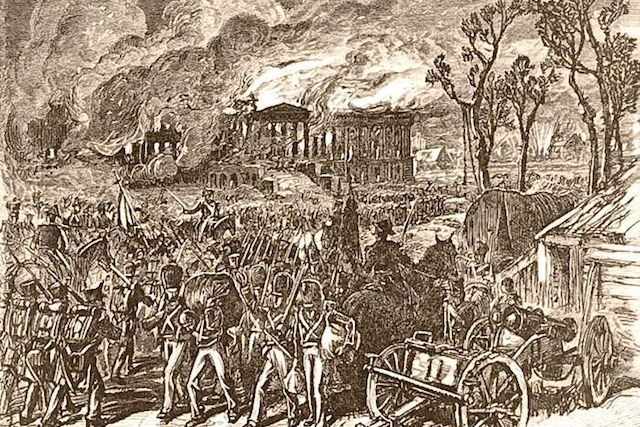
Some people have heard that the British temporarily took Washington DC during the war and even burned down the White House, but it was a bit more complicated than many know from the brief summary in many history books. Most imagine that Washington DC was the place of some kind of bloody battle, but the truth is that it was largely undefended and pretty much taken without a fight. When the war had started the United States simply hadn’t had a truly hardened army for some time, as they had been trying to stay out of international affairs and hadn’t had any problem with anyone until the British started impressing their seamen.
The United States militia was weak and disorganized and simply not ready, so the fledgling United States military took up positions elsewhere and DC was easily conquered. The White House, the capitol, the Naval Headquarters and Treasury and many other government buildings were burned to the ground. However, the British occupation of the city really only lasted for about 24 hours as they felt they needed to continue on the move to avoid counter-attacks and keep taking territory. Unfortunately for the British, as an invading force they simply did not have enough backup forces regularly supplied to keep up such sustained conquering, and while they at first won battles due to discipline and training, sheer numbers and resources quickly wore them down. Their only real hope at winning such a war that quickly would have been to capture the government leaders, and even their rushed attack on the United States capitol was not fast enough or sneaky enough to achieve that goal.
9. It Started With The British Conscripting US Navy Soldiers And Creating New Resentment
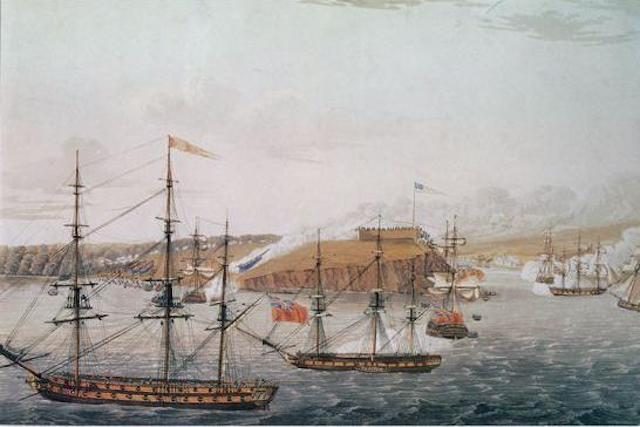
One thing many Americans do tend to know about the War of 1812 is that the British stealing our seamen was the main reason why we got into the war in the first place. We did it essentially because it was an unspeakable outrage that Americans simply wouldn’t take lying down, despite the fact that Great Britain at the time was a far greater power, and America had basically no Navy or standing army in comparison.
Many people, however, are short on the details. The truth is that impressment had been a legal practice of the British Empire — legal under their own laws — for hundreds of years. Impressment was a practice wherein if the nation was at war and adult men were found idle or otherwise not working in ship related occupations, they could be pressed forcibly into naval service. This method was also allowed to be used on British citizens onboard foreign ships, and the British Navy bullied the United States by using this shaky legality to kidnap a lot of United States sailors. After several thousand — although the exact number is constantly called into question — the country decided it had enough and declared war, kicking off an ugly conflict against a much more powerful country.
8. The United States Destroyed The Parliament At York
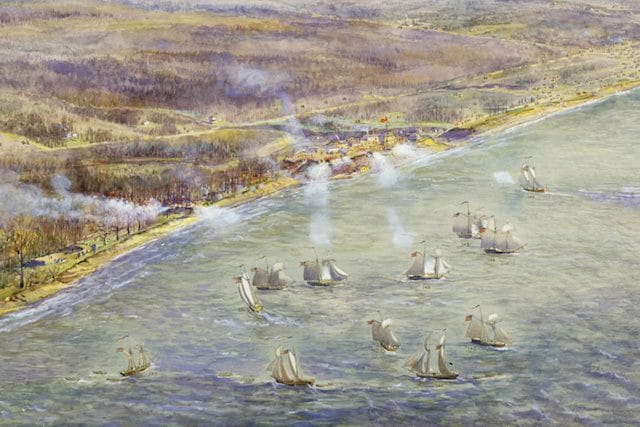
Part of the untold story of the War of 1812 is that the United States took the opportunity during the declared war to attempt to take a bunch of portions of British controlled Canada, and failed spectacularly in the process. However, while attempting to take control of Canada, the Americans did win some hard fought battles, and their actions caused a lot of not so great consequences in the near future. After winning a battle at York in upper Canada, at the location now known as Toronto, the Americans went a little overboard.
After taking the town, their losses were great and they were feeling pretty keyed up, so they decided to take it out on the town and its people. They looted York, burned down the parliament building and a whole lot of government and other buildings as well. People talk about the burning down of the White House with outrage to this day, but it was actually a retaliatory arson to get us back for the arson against York that we did first. While tit for tat is never something people can claim to be a morally proper stance, it is actually clear in the historical record who “started it” in this particular situation.
7. The Story Of The Painting Of George Washington Leaves Out A Lot Of Details
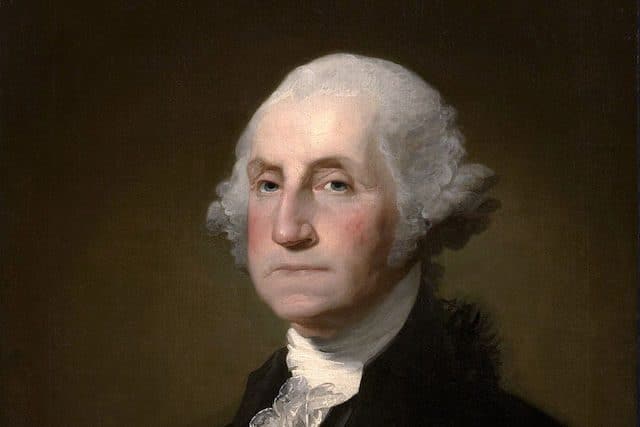
One of the few famous legends of the war that even most who know little about the War of 1812 have heard of is how the first lady at the time, Dolly Madison, smuggled the original full length portrait of George Washington out of the White House in her dress, escaping just as the British were closing in and burning everything down around her. The truth is that she had plenty of time to escape and saw them coming in more than enough time — although the right road to escape through might have closed off if she had waited too much longer. More to the point though, the popular story of the painting itself leaves a lot to be desired.
To begin with, the heroics to rescue the painting were not performed by First Lady Dolly Madison herself, but by a servant, an enslaved youth named Paul Jennings, who was instructed to either get the painting out safely or burn it to avoid it getting into the hands of the British and being desecrated or held hostage by them. The slave had to break the frame itself, and then roll up the portrait in order to get the huge piece of art safe and intact out of harm’s way. Now, it turns out that not only was a slave the real hero in the story, but it as actually one of several copies of the original Lansdowne portrait of George Washington, and may not have even been painted by Gilbert Stuart.
6. Native Americans Played A Big Role On The Side Of The British
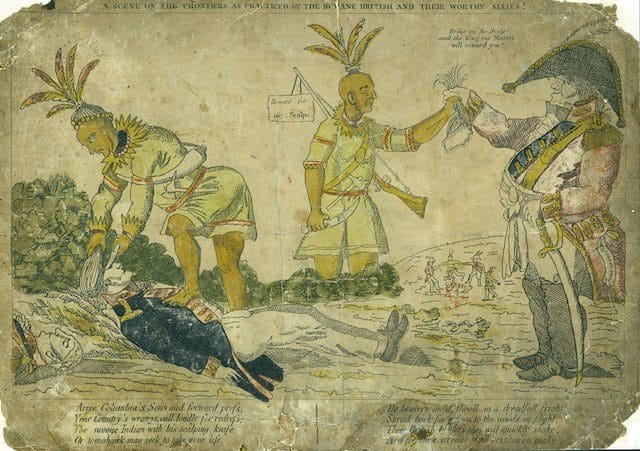
Going back to the American Revolution, the natives had fought with the British in the hopes that the British winners would keep their promises to help the natives keep the West free of further American expansion. The truth is that the natives had good reason to believe this, as British laws had slowed the taking of native lands back when the colonies were still under British rule. At the time of the War of 1812, the British believed arming the natives could help defend Canada from the Americans, and gave them lots of supplies to aid them.
The natives were mostly formed into a confederacy under the leadership of a Shawnee leader named Tecumseh, who was skilled at politics, battle and military strategy. Unfortunately, during the Battle of the Thames, near what is modern day Ontario, the coalition of natives suffered a great defeat at the hands of the Americans and Tecumseh was lost in the battle. The death of their leader led to the end of the fragile coalition of tribes and warriors, and an end to the dream of Native Americans to stop westward expansion. To make matters worse for the Natives, the one real win for America in the War of 1812 was that after its conclusion, the British decided to stop arming the Native Americans or helping them in any way… as long as we left Canada alone, of course.
5. Apart From Impressment, The United States Was More The Aggressor At First
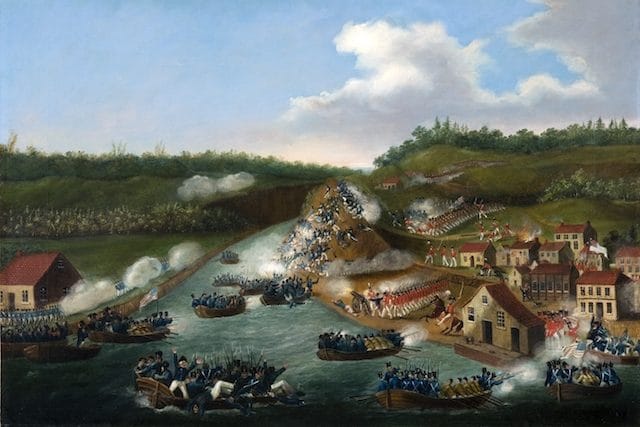
While the kingdom of Great Britain did start the hostilities in the first place by very unethically kidnapping American citizens and forcing them into naval service, they were not the first to actually declare war or start actual, physical hostilities or invasion attempts in this particular conflict. In point of fact, the British were far too busy with the Napoleonic War, which was the reason they were impressing American seamen to begin with, so they mostly stayed low-key at first. In fact, the first major attempts by either force to take anything significant, were the United States failed attempts to take British controlled North America — what is now Canada.
However, this doesn’t mean the British were entirely innocent of provocation beyond the impressment itself. While their major attacks and blockades would only get going as the Napoleonic War was wrapping up, we do know that they did supply Native Americans with money and intel in order to further a proxy war against the Americans from a distance. This hindering of America’s westward expansion helped fuel American anger and helped the Americans forget their sense of reason long enough to declare war against a much greater power.
4. In Great Britain, The War Of 1812 Was Just Another Theater In The Napoleonic War
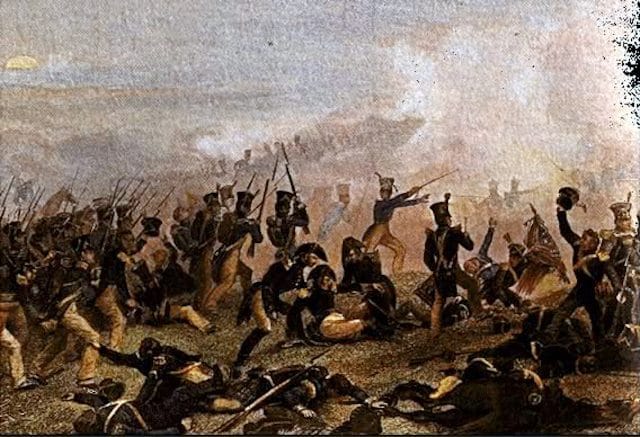
To the Americans and many in Canada, the War of 1812 was truly a significant war in its own right — the British of course saw things very differently. They were in an all out war with Napoleon, who was trying to make France the conqueror of the world, and he was pushing through Europe and ambitiously trying to take Russia as well. The British felt it was simply their right to impress as needed for the overall conflict, and felt that the United States declaring war on them when they are involved against such an ambitiously out of control general, was more of a stab in the back than anything else. They also had very little resources to spare, so to them the war at the time was really nothing more than a distraction that they first tried to negotiate their way out of.
One of the justifications for war had been that Britain had been blocking neutral trade between America and France, and they even considered partially rescinding this to avoid war, but President James Madison made the impressment of American seaman a sticking point, and the British were not willing to cave on that issue. The British spent a very small amount of their forces at first, mostly sticking to defending Canada with the few troops they already had, and supplying Native American forces when possible. It was only after Napoleon was greatly weakened, that the blockade of the USA went into fuller force, and the British really started attacking America in return. It didn’t take long after the full force of the British army and navy were brought to bear that the United States found it in their hearts to negotiate an end to the hostilities.
3. The 1812 Overture Has Absolutely No Connection To This War Whatsoever
The 1812 Overture is one of the most familiar pieces of music in the United States of America, and in a way it fits the country well. It is brash, bold and full of rockets and cannon fire, taking up essentially the whole ensemble an orchestra can bring to bear. It has 1812 right in the title as well, so most Americans assume that it is a chiefly American song about their own victories, and play it to celebrate their independence. However, the Overture was actually written by Pyotr Ilyich Tchaikovsky and it has absolutely nothing to do with America at all.
It did indeed have to do with a war that was fought in 1812, but as we mentioned in the last entry, the American War of 1812 was just another theater in the globe spanning Napoleonic Wars, which also included the Russians. The song was actually meant to celebrate the Russians’ ultimate victory against the French, starting slower, as the Russians were not doing so well in the overall conflict at first, and building to a dramatic crescendo as they finally forced the retreat of the invading European forces. The Boston Pops used it back in 1984 for a July 4th celebration, not in order to confuse people but because they thought the style was particularly fitting. It was so popular the Boston Pops plays the song every year at their celebration, and the misconception continues in the minds of many Americans to this day.
2. The War Of 1812 Almost Bankrupted The US Government And Only Ended From Exhaustion
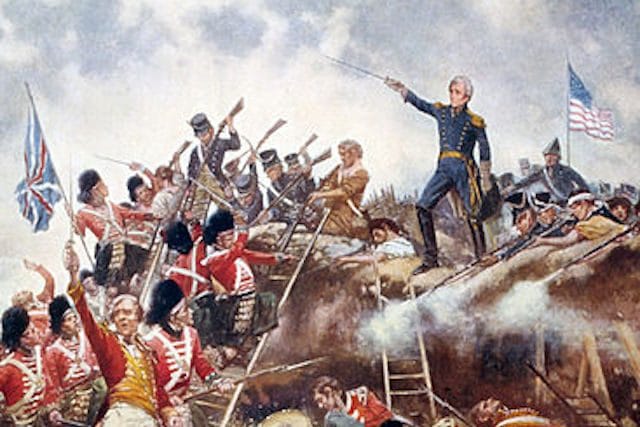
The War of 1812 is not very well taught in America today, so many people are under the impression that it was really a big win for the United States of America. However, with the Treaty of Ghent, the two powers agreed in 1814 to officially end the war status quo ante bellum, or “the status before the war.” What this means in essence is that the boundaries stay the same, no one gains or loses any territory, and no one really cedes any major financial or other reparations. The United States spent millions, lost thousands and failed entirely to gain any traction in lower or Upper Canada — they did not gain, but only lost, a war that they started.
Now, some might argue that the United States needed to start the war to stick up for themselves, but declaring war and trying to protect yourself navally is quite a bit removed from going several steps further and invading then British held Canada. The truth is that the United States attacked too hard, too fast, bit off more than they could chew, and with the costs of the war as well as the British Naval blockade — which increased greatly after Napoleon was no longer an issue — they were quickly going bankrupt. The only reason Britain agreed to end the war was because the British people were simply war weary after the Napoleonic conflict, and wanted to go back to normal trade relations with the New World. The Americans, as well, saw no reason to continue — with the Napoleonic conflict over and no seamen being impressed, there was really nothing left to fight about.
1. Much Has Been Forgotten About The True Story Of The Star-Spangled Banner
https://www.youtube.com/watch?v=oqq7ALCDGFc&frags=pl%2Cwn
The story of the Star-Spangled Banner, in many Americans’ eyes, is the perfect story of hope and inspiration. As far as many people know, Francis Scott Key was captured by the British and stood by trapped on their ship, scribbling furiously into a notepad to show his belligerence and defiance to the British, proudly declaring that despite the horrifying fireworks show going on, that Americans persistence and the flag would remain throughout the night. However, the story is actually a little bit more complicated. Francis Scott Key was a lawyer and quite a good one at that, so he was actually up to his usual business that night. A friend had recently been arrested by the British, and he had gone to board a British vessel in order to see if he could secure his release. He was so good at negotiating that the British released his friend, but Key and his pal heard word of the coming attack on Baltimore, so the British could not just let them leave for the time being.
They allowed them back on their own boat, with a small guard just to make sure they didn’t run off to warn anyone. Francis Scott Key had a front row seat to watch the entire attack, but like the British, that didn’t necessarily mean he always had the greatest view. While you don’t really hear people sing it with the inflection of a question, Key was actually terribly worried that the flag had gone down at certain points and that America had lost — the famous verses are actually him questioning his own eyes, as to whether the American flag, and not the Union Jack, was still soaring over Fort McHenry. Not only that, but there are three other verses that are never sung at baseball games, which revel in the final victory and gloat angrily about the British final failed attack on the fort. It’s probably best that these verses remain mostly unsung.